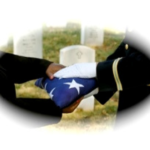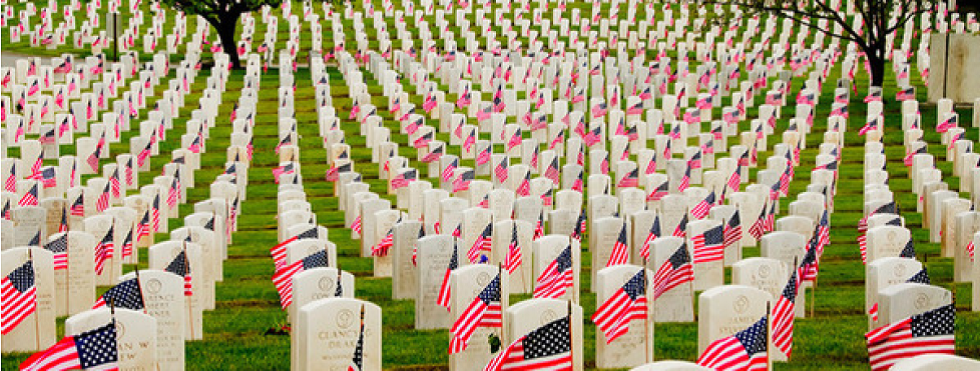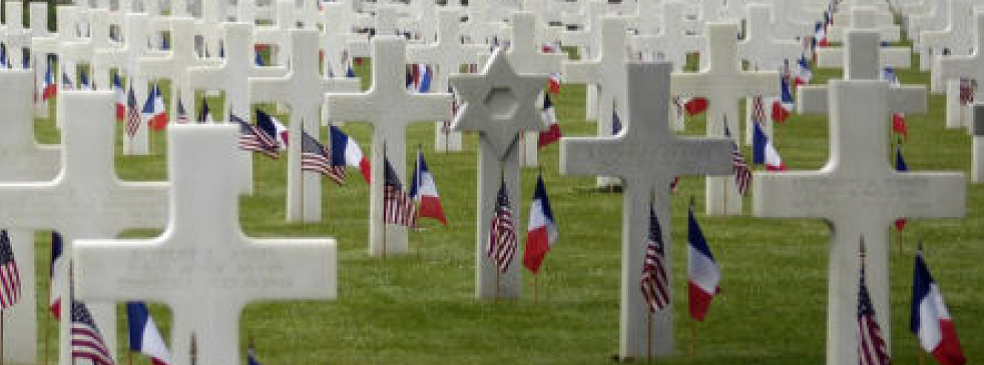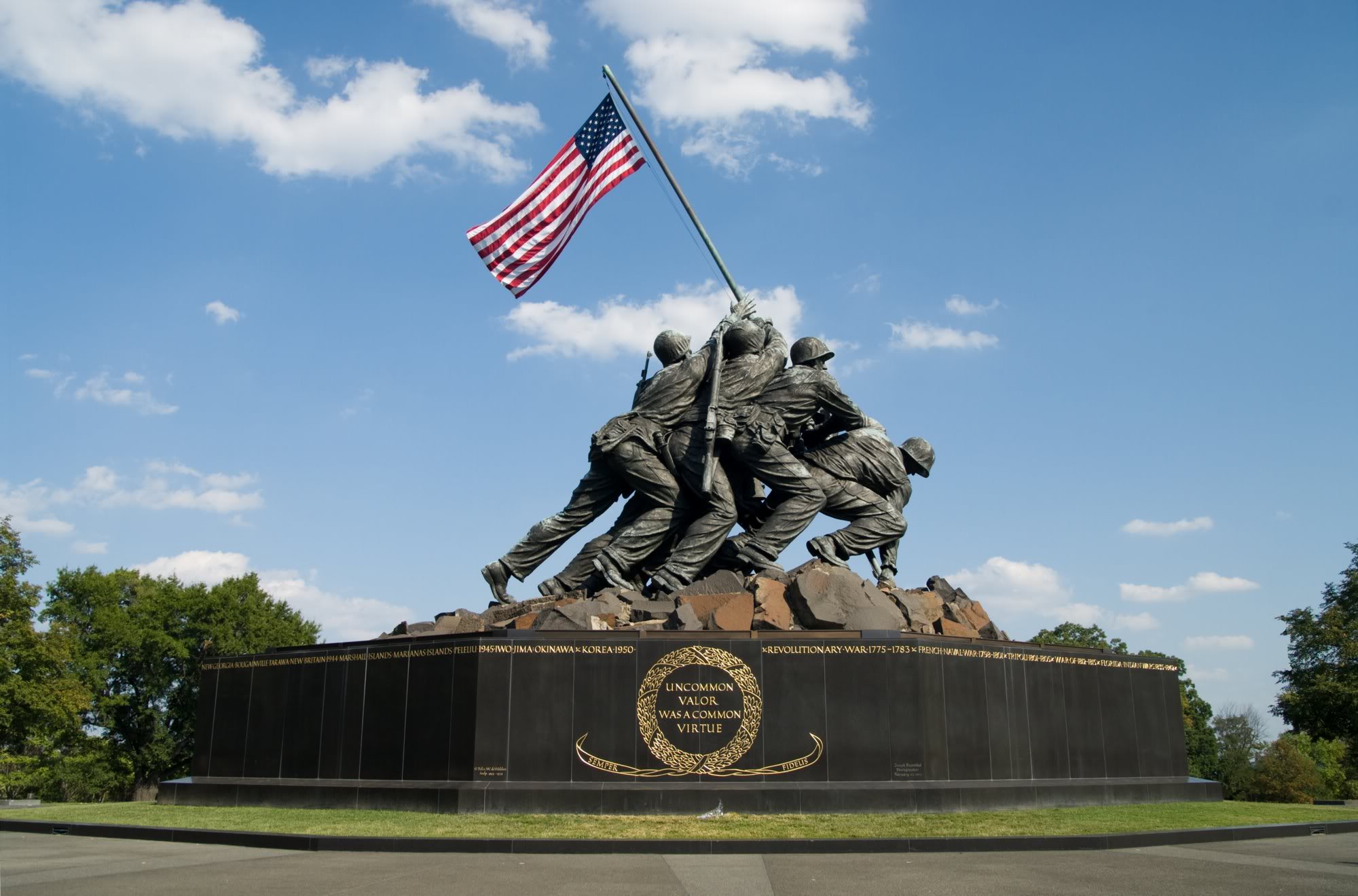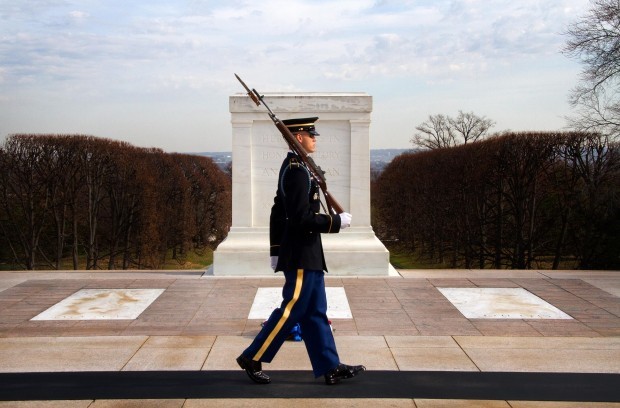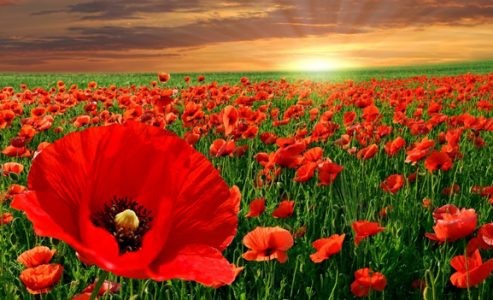A bittersweet moment: The American flag is carefully folded and presented in the name of a grateful nation as a moving tribute of lasting importance to the veteran’s family. We all should pause and reflect on such honorable service, especially for those who gave their lives on our behalf.
Since 1968, Memorial Day has been celebrated on the last Monday in May — yesterday this year. But it was not always so — and that history deserves a bit of remembering, beyond enjoying a long weekend.
But first, we should never forget its intended purpose — to remember those who died to gain and preserve our freedom. And we should remind ourselves of the costs of that freedom and the lessons we should have learned from past experiences so as to minimize future costs in lives and treasure.
As former Secretary of State and Joint Chiefs Chairman Colin Powell stated in 2003
“We have gone forth from our shores repeatedly over the last hundred years and we’ve done this as recently as the last year in Afghanistan and put wonderful young men and women at risk, many of whom have lost their lives, and we have asked for nothing except enough ground to bury them in, and otherwise we have returned home to seek . . . to live our own lives in peace.”
Click here for a discussion of this notable quotation, which Powell put forward several times in the context of what he called the “soft” power of diplomacy and persuasion which we prefer to apply vs. the “hard” power of military means, sometimes reluctantly required to protect America, our friends and our allies. We should never forget the conditions for minimizing the need to use “hard” power to achieve our desired ends.
Alas, our efforts since 2003 have not brought us peace. Our young men and women are still engaged in mortal combat in the Middle East and East Asia — and there are continuing and growing threats in what I consider to be most dangerous time in my lifetime, which includes World War II.
Our adversaries include North Korea and Iran (the world’s largest source of Islamic terrorism) seeking nuclear powers, both allied with a heavily nuclear-armed belligerent Russia and a potential menace from China as it attains greater economic power, advances technology to rival if not exceed our own and seeks to expand into the South China Sea and beyond — as has been its goal for decades.
(For an authoritative reference on China’s long-term global dominance goals, click here for Michael Pillsbury’s The Hundred Year Marathon: China’s Secret Strategy to Replace America as the Global Superpower.”)
While contemplating these thoughts about our current challenges on this Memorial Day, it is useful to ask, “What has our History taught us?”
George Washington advised, “To be prepared for war is one of the most effective means of preserving the peace.” And in rebuilding the atrophied military capabilities he inherited, President Ronald Reagan abbreviated that sound advice to “Peace through Strength.”
President Trump is repeating this motto and, like President Reagan is rebuilding our military after almost 30 years of deterioration and the wear and tear of almost continuous overseas deployment. Hopefully, his approach will reduce future costs, especially in the lives of our young men and women who stand in harm’s way to protect our freedom at home and our interests abroad.
In addition to cemeteries in small towns and cities across America, recent casualties continue to join over 400,000 Soldiers, Marines, Sailors, Airmen, and Coast Guardsmen buried in Arlington National Cemetery.
And how can anyone, especially anyone who has visited the cemetery where lay buried 1400 or so Americans killed on the nearby Normandy Beaches on D-Day — June 6, 1944, forget the costs of being unprepared to deal with Hitler’s despotic regime? Those graves, and many others, illustrate the cost of ignoring the gathering storm that led to World War II. Dare we repeat that tragic error? And remember, Normandy is only a token of those costs of failing to be prepared for what Winston Churchill called an “unnecessary war.”
There are 24 American cemeteries maintained overseas for 125,000 of our fallen — 61,000 in France alone from two wars that saved Europe, and memorials to another 94,000 Americans who were lost at sea and never recovered for burial. And there are memorials in other places recalling our fallen in other engagements and wars, e.g., in Korea, Viet Nam, the Middle East, East Asia, etc. And who can forget Pearl Harbor and casualties in the war in the Pacific, including thousands of Marines who died in capturing the Pacific Islands to set the stage for concluding World War II, especially given the statue of the raising of the American Flag on Iwo Jima, appropriately placed next to the Arlington National Cemetery? Semper Fi!
Over the weekend and yesterday around the world, friends of America gathered to remember sacrifices made in defense of freedom and the principles established by “We the people” as asserted by our Constitution — truths that flow from the Declaration of Independence’s assertion that “The Creator,” not government, endowed all with certain unalienable rights including “Life, Liberty and the Pursuit of Happiness.”
We Americans have a persistent habit of remembering those sworn to defend that Constitution, especially those who died to keep us free. May it ever be so!
It is a long tradition that began for me as a farm boy in South Carolina, where I was taught that following the Civil War, Southern ladies began a tradition of placing spring flowers on the graves of both Confederate and Union soldiers buried near where they fell. Later, I learned that many places — North and South — claimed to have held the “original” Memorial Day recalling memories of over a half-million Americans who died in that war.
On the first official Memorial Day, 150 years ago, flowers were placed on the Arlington National Cemetery graves of both Union and Confederate soldiers as the nation struggled to renew our Union. In those days immediately after the Civil War, there was apparently less residual bitterness than some expound today.
(For those who don’t know, Arlington House was the Union Army Headquarters during the Civil War, and was previously the home of Robert E. Lee who rejected President Lincoln’s offer to command the Union forces and instead, as a loyal Virginian, commanded the Confederate forces. And Lee had inherited what is now Arlington National Cemetery from the estate of the adopted grandson of George Washington.)
Although there are about 5000 unknown soldiers buried in Arlington, the first “unknown soldier” was buried in Arlington Cemetery’s Tomb of the Unknown Soldier in 1921, and upon that tomb was subscribed “HERE RESTS IN HONORED GLORY AN AMERICAN SOLDIER KNOWN BUT TO GOD.” Since then on Memorial Day, Presidents have laid a wreath on the Tomb of the Unknown Soldier, which is guarded 24 hours a day, 365 days a year — rain or shine — by a “select” honor guard from the 3rd U.S. Infantry Regiment “The Old Guard,” serving since 1784. Symbolically of the highest honor, the sentry takes 21 steps, faces the tomb for 21 seconds, turns and pauses 21 seconds, then retraces his steps.
In 1958, President Eisenhower placed soldiers in the tomb from WWII and the Korean War, and in 1984, President Ronald Reagan placed a soldier from the Vietnam War in the tomb — though a subsequent DNA test identified him as Lieutenant Michael Blassie, an Air Force Academy graduate who was reburied at Jefferson Memorial Cemetery in his home town — St. Louis, Missouri. Then the crypt cover was replaced with the inscription, “Honoring and Keeping Faith with America’s Missing Servicemen, 1958-1975.”
In any event, Memorial Day has been celebrated on various dates ever since 1868 — to remember those who died in our nation’s wars.
In the latter days of World War I, in reflecting on the fallen, John McCrea composed his famous poem “In Flanders Field” while burying a friend among the poppy flowers, originating the practice of wearing poppies to commemorate Memorial Day:
“In Flanders fields the poppies blow
Between the crosses, row on row,
That mark our place; and in the sky
The larks, still bravely singing, fly
Scarce heard amid the guns below.“We are the Dead. Short days ago
We lived, felt dawn, saw sunset glow,
Loved and were loved, and now we lie
In Flanders fields.“Take up our quarrel with the foe:
To you from failing hands we throw
The torch; be yours to hold it high.
If ye break faith with us who die
We shall not sleep, though poppies grow
In Flanders fields.”
Memorial Day honors all who gave their lives defending America’s freedom, including those who served in the Spanish-American War, World War I; World War II; the Korean War; the Vietnam War; Desert Storm; and up to current conflicts including against Islamic terrorism.
Charles Michael Province, a U.S. Army veteran and President of The George S. Patton, Jr. Historical Society, wrote a poem that says it all:
It is the Soldier, not the minister
Who has given us freedom of religion.It is the Soldier, not the reporter
Who has given us freedom of the press.It is the Soldier, not the poet
Who has given us freedom of speech.It is the Soldier, not the campus organizer
Who has given us freedom to protest.It is the Soldier, not the lawyer
Who has given us the right to a fair trial.It is the Soldier, not the politician
Who has given us the right to vote.It is the Soldier who salutes the flag,
Who serves beneath the flag,
And whose coffin is draped by the flag,
Who allows the protester to burn the flag.
Every day should be a Memorial Day. So, pause and remember those who made the ultimate sacrifice so that you can enjoy the freedom we so often take for granted. And remember their families and loved ones left behind.
Remember the wounded in the recent conflicts and those who still stand in harm’s way so that you and I can breathe free.
Thank God for this land and those who made — and make — our freedom possible.
Pray that we will not fail to do our duty to keep faith with our Founders and those who have sacrificed to keep their gift to us and our posterity.
We need again to restore the Patriot’s Dream of America as an exceptional land — the “City on a Hill” as my favorite President Ronald Reagan often referred to it, in quoting John Winthrop’s challenge to the Puritans as their ships approached their future home in Massachusetts: “We shall be as a city upon a hill, the eyes of all people are upon us.”
Like them, we need again to seek God’s blessing and guidance — in Irving Berlin’s words of that favorite song of my youth, sung in weekly grade school chapel sessions (when we still prayed in school) and enjoyed in regular radio renditions by Kate Smith especially during World War II: — Click here for a vintage presentation of her very first (1938 I think) performance. (See if you recognize Ronald Reagan in that video — Hint: it’s near the end.):
“While the storm clouds gather far across the sea,
Let us swear allegiance to a land that’s free,
Let us all be grateful for a land so fair,
As we raise our voices in a solemn prayer.“God Bless America,
Land that I love.
Stand beside her, and guide her
Thru the night with a light from above.
From the mountains, to the prairies,
To the oceans, white with foam
God bless America, My home sweet home.”
Amen to that! We must keep faith with those who paid for our freedom with their lives. Let Freedom Ring!
What can you do?
Join us in praying for our nation, and for a rebirth of the freedom sought, achieved and passed to us by those who came before us.
Help us to spread our message to the grass roots and to encourage all “powers that be” to provide for the common defense as they are sworn to do.
Begin by passing this message to your friends and suggest they visit our webpage www.highfrontier.org, for more information. Also, please encourage your sphere of influence to sign up for our weekly e-newsletter.
Encourage them to review our past email messages, posted on www.highfrontier.org, to learn about many details related to the existential manmade and natural EMP threats and how we can protect America against them. I hope you will help us with our urgently needed efforts, which I will be discussing in future messages.
Click here to make a tax deductible gift. If you prefer to mail a check, Please send it High Frontier, 20 F Street 7th Floor, Washington, DC 20001.
E-Mail Message 180529
Please click here to read Past Weekly Updates!
Please help High Frontier continue this important and timely work!
Be sure to follow us on our Social Sites!
If you found this letter via our Social Sites, and you would like to subscribe, please click below!

